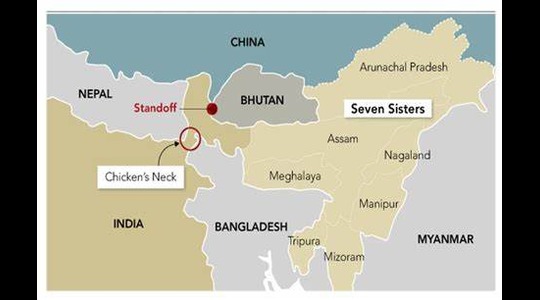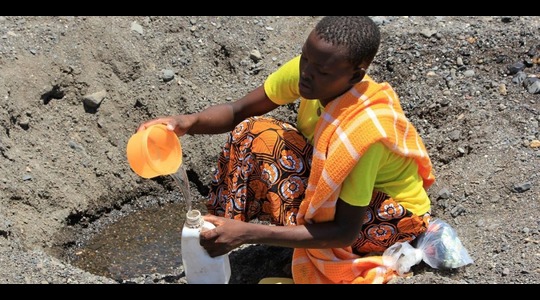Bangladesh, a littoral country, should focus on “Maritime Security” and “Blue Economy” to develop itself and to be a regional power. Maritime security consists of traditional and non-traditional security. Traditional security means direct military threats from global powers .Bangladesh has to mitigate traditional security concerns balancing with China, America, and India through strong foreign diplomacy initiatives.
M. Habibur Rahman, Student, Department of International Relations:
University of Dhaka.
China-America rivalry is the ultimate fate of current world politics. A prominent German legal and political theorist, Schmitt, suggested in his 1927 book “The Concept of the Political” that the existence of an “enemy” is essential for defining a political identity. So, America needs an enemy, China, and China needs an enemy, America. At a regular pace, China emerges as a throat-cutting threat to America, and America falls into Thucydides’ Trap as China is in the race to become a global power. Experts called this rivalry “the New Cold War.” American geopolitical interest is shifting from the Middle East towards the Indo-Pacific region to counter China. This shift started during the Obama Administration in 2011 with the policy of “Pivot to Asia” or “Rebalance to Asia.” Bangladesh is one of the partners of the Indo-Pacific region. It becomes crucial to America and China to gain their geopolitical game in the Indo-Pacific region.
Bangladesh is in a dangerous situation where tilting towards America or China can destabilize its internal and external sovereignty. Besides this, fortunately, it can also be a regional power through diplomatic maturity: playing well with America and China and convincing them to invest heavily in its infrastructure and economic development. But the ultimate truth is that if Bangladesh is unable to conduct its foreign diplomacy and international relations, Bangladesh cannot balance any longer and cannot play well with the global powerhouse. Bangladesh should take some steps to bolster its regional power and global power.
Bangladesh, a littoral country, should focus on “Maritime Security” and “Blue Economy” to develop itself and to be a regional power. Maritime security consists of traditional and non-traditional security. Traditional security means direct military threats from global powers . Bangladesh has to mitigate traditional security concerns balancing with China, America, and India through strong foreign diplomacy initiatives. Bangladesh should continue its engagement with China through BRI for infrastructure development. This ensures China that Bangladesh does not fall into the American bloc. This cunning diplomacy helps Bangladesh get more infrastructure development projects from China, which can make Bangladesh an economic giant country. On the other hand, Bangladesh should maintain its relationship with America. It can be done by allowing America’s presence in Bangladesh’s maritime security by cooperating in the Bay of Bengal under the Free and Open Indo-Pacific (FOIP) framework. It aligns with America’s Indo-Pacific strategy. The USA is also a trade partner in the garment sector of Bangladesh. It can maintain its trade with America, which consolidates the America-Bangladesh relationship.
This relationship ensures America that Bangladesh does not fall into the Chinese bloc. And also, Bangladesh should maintain its trade diplomacy with India. As Bangladesh is the closest country to India and a crucial partner in security and regional connectivity, it has become very important to India. India strengthens its trade with Bangladesh to balance India’s concern about China’s omnipresence in Bangladesh. So, Bangladesh should continue its trade relationship with India to safeguard its food security and to be a well-developed country.
Bangladesh also focuses on its non-traditional security, such as maritime law, maritime security initiatives, environment protection, and climate change. Bangladesh can actively participate in regional platforms like the Indian Ocean Rim Association (IORA) to mitigate common challenges like piracy and illegal fishing to ensure non-traditional maritime security. Apart from this, Bangladesh has to heavily invest in maritime disaster preparedness. It also needs to collaborate with international environmental organizations, which can enhance efforts to manage marine ecosystems and combat ocean pollution.
Bangladesh must develop a blue economy policy to be self-sufficient in fisheries, tourism, renewable energy, and conservation efforts. In Bangladesh’s blue economy, the fisheries sector is crucial for its economic boost. The fishing sector contributes 3.57% to GDP and facilitates the livelihoods of millions of people. Bangladesh should ensure sustainable fishing practices to prevent overfishing and protect marine biodiversity. In this situation, aquaculture can be the alternative way to cover the demand for fish production, which can lighten the pressure on seafood. Aquaculture now contributes around 57% of total fish production. On the other side, Bangladesh has beautiful islands, coastal areas, and forests such as Cox’s Bazar, Kuakata, and Sundarbans. According to the Bangladesh Tourism Board, Bangladesh has the potential for marine tourism growth.
Also, Bangladesh can create an eco-tourism sector, which helps it generate revenue from foreign tourists. In addition, eco-tourism can create awareness about marine conservation worldwide. The marine sector has the potential to contribute to renewable energy. The Bangladesh Power Development Board has identified potential sites for tidal energy projects, which can contribute to the energy security of Bangladesh. After all, as Bangladesh is a littoral country, its economic development depends on how it utilizes its marine resources.
***The opinions shared in this article are the author’s own and do not represent this platform’s stance.





